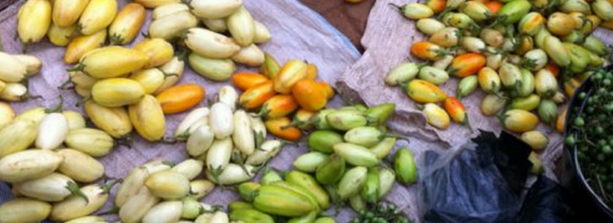
Large contrasts exist in how we manage the food we have available. While in parts of our societies there is a shortage of food, in the urban and wealthier communities, good food is thrown away only because it is beyond its sell-by date. Optimising the ‘farm to fork’ chain can contribute significantly to food security.
Managing the crop supply chain for increased food security
Strengthening your insights to reduce the food lost
Estimates indicate that 30 to 40% of the food produced globally is lost post-harvest or wasted because it’s never consumed. Without these losses there is sufficient food available to feed the world population, even when it will reachs 9 billion people. Complete utilisation of food may remain science fiction, but there are many possibilities for a drastic reduction of losses. A conducive policy environment, and actively involved public services and private sector are prerequisites to reduce the amount of ‘missing’ food.
In this course, we will look at ways to minimize losses, reduce food waste and explore alternative uses. Ultimately, reduction of losses contributes to food security. During the course we will critically analyse the supply chain, and design sustainable alternatives with special attention to harvest practices, storage, spoilage and food waste management.
The training approach is interactive: we will use a mixture of lectures, discussions, group work and field trips with the aim to expose you, as far as possible, to all aspects of post-harvest and waste management. Meeting course colleagues from other countries, but with similar interests, leads to exchange of experiences and mutual learning. Participants’ case studies are the basis of the group work.
Course objectives
Upon completion of the course you will:
- understand the link between primary production, post-harvest management, the supply chain and food security;
- be familiar with alternative uses of food waste;
- have insight in the public and private responsibilities in the supply chain for post-harvest handling and food waste management;
- be able to design solutions for minimising the amount of ‘missing food’, from smallholders to multinational retailers.
Target audience
The basic prerequisite for participation in the course is an active interest and professional experience in this field. Participants should be proficient in English, and have at least a BSc Degree or an equivalent academic qualification.
- This event has passed.

